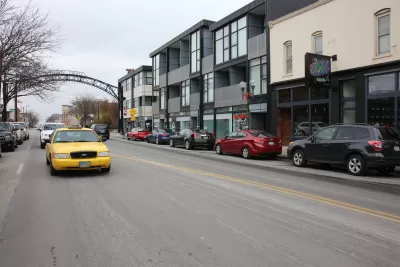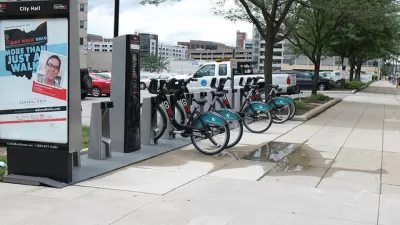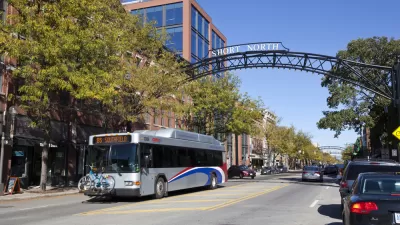The program aims to address infant mortality by improving transportation access so women can more easily get prenatal care and other services.

A pilot program in Columbus, Ohio, will provide on-demand rides to pregnant women to help them get to doctor’s appointments and run errands. From July to November this year, the program will offer transportation to 500 women who are receiving Medicaid and live in neighborhoods in Columbus with the highest infant mortality rates.
"In an email to CityLab, Courtney Lynch, a professor of obstetrics at the Ohio State University who is co-leading the evaluation of the pilot, called the program 'a completely novel intervention,' designed to research whether lowering barriers to prenatal care and reducing gaps in transportation for low-income women can eventually treat the city’s darkest public health issue," reports Laura Bliss.
Bliss notes that the United States, Ohio, and Franklin County all have high infant mortality rates. In addition, the mortality rate nationally for black babies is 2.4 times that of white babies. Studies have shown that lack of access to prenatal care and stress are two factors strongly tied to infant mortality, particularly among poor and African-American women.
The $1 million of funding for the Columbus program is coming from a $50 million Smart City Challenge grant the city won from the U.S. Department of Transportation for a series of technology projects.
FULL STORY: In Columbus, Expectant Moms Will Get On-Demand Rides to the Doctor

Study: Maui’s Plan to Convert Vacation Rentals to Long-Term Housing Could Cause Nearly $1 Billion Economic Loss
The plan would reduce visitor accommodation by 25,% resulting in 1,900 jobs lost.

North Texas Transit Leaders Tout Benefits of TOD for Growing Region
At a summit focused on transit-oriented development, policymakers discussed how North Texas’ expanded light rail system can serve as a tool for economic growth.

Why Should We Subsidize Public Transportation?
Many public transit agencies face financial stress due to rising costs, declining fare revenue, and declining subsidies. Transit advocates must provide a strong business case for increasing public transit funding.

How to Make US Trains Faster
Changes to boarding platforms and a switch to electric trains could improve U.S. passenger rail service without the added cost of high-speed rail.

Columbia’s Revitalized ‘Loop’ Is a Hub for Local Entrepreneurs
A focus on small businesses is helping a commercial corridor in Columbia, Missouri thrive.

Invasive Insect Threatens Minnesota’s Ash Forests
The Emerald Ash Borer is a rapidly spreading invasive pest threatening Minnesota’s ash trees, and homeowners are encouraged to plant diverse replacement species, avoid moving ash firewood, and monitor for signs of infestation.
Urban Design for Planners 1: Software Tools
This six-course series explores essential urban design concepts using open source software and equips planners with the tools they need to participate fully in the urban design process.
Planning for Universal Design
Learn the tools for implementing Universal Design in planning regulations.
Ascent Environmental
Borough of Carlisle
Institute for Housing and Urban Development Studies (IHS)
City of Grandview
Harvard GSD Executive Education
Toledo-Lucas County Plan Commissions
Salt Lake City
NYU Wagner Graduate School of Public Service





























